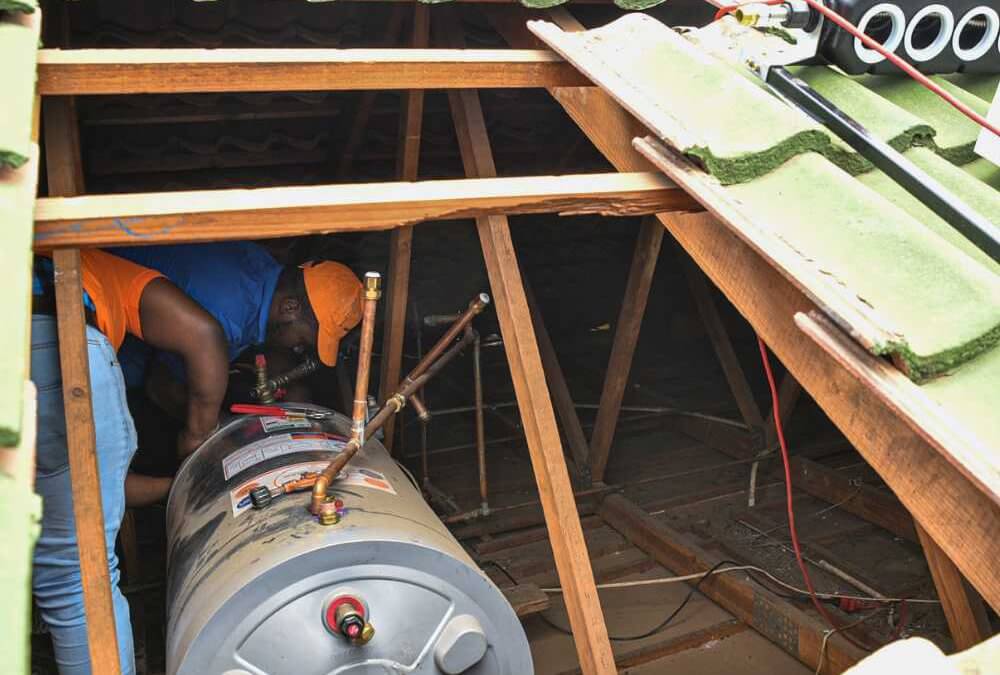The benefits of solar energy are becoming more prominent in South Africa. People are looking for an alternative to electricity and it’s easy to see why. In 2023, South Africans have faced escalating load shedding schedules with 2 or 3 daily be becoming comment. These have severely affected businesses and homes during an already difficult year.
Over the last decade, South Africa has seen a 350% increase in electricity costs while inflation during the same period was 74%. This means electricity has increased more than four times faster than inflation. Further, Eskom has announced a price rise of a staggering 18.7% as of 1st April 2023 with a further escalation of 12.7% in April 2024 making electricity bills increasingly unaffordable.
With such high electricity price increases, everyone is looking for ways in which we can save on our bills. Electric geysers account for 40% of the electrical bill for an average household, this means that after the initial investment costs of a solar geyser, you’ll be saving so much on your bill that the solar geyser will start paying for itself. When properly maintained, a solar geyser can last up to 20 years, while regular geysers usually last around 5 years – so by having a solar geyser installed, the value of your property will actually increase. This is just another way solar geysers are a lifetime investment that will be extremely beneficial in the long run.
South Africans are ideal candidates for solar conversion because not only are we burdened with the effects of load shedding and high electricity costs – but we are blessed to experience more sun in winter months than most countries. This means your solar energy will never be negatively affected by season changes and you won’t have to worry about electric backup. An average winter’s day in South Africa will gather more than enough solar power for your geyser, so why not utilise it?
Energy independence is a valuable asset in South Africa, if more people choose to convert their geysers to solar our country can develop into a place where solar power is the preferred source of energy. This will decrease the dependency on government-run electricity providers – which could result in more reliable electricity provisions when needed. Solar is undoubtedly the best alternative to fossil fuel dependency, especially when it comes to water heating.
When you heat your water with solar – you’ll experience uninterrupted convenience, drastically lowered bills and you’ll be nearly halfway to total energy independence.
When you heat your water with solar – you’ll experience uninterrupted convenience, drastically lowered bills and you’ll be nearly halfway to total energy independence.
